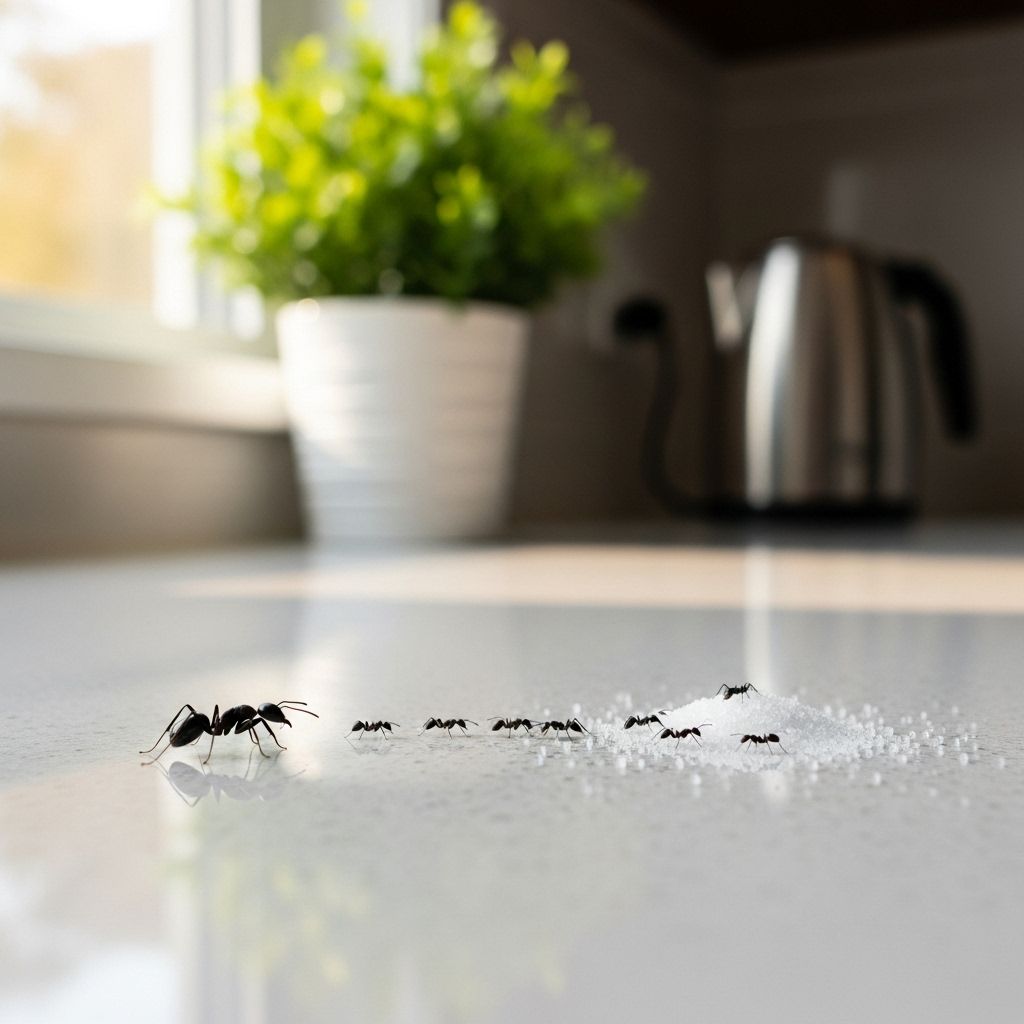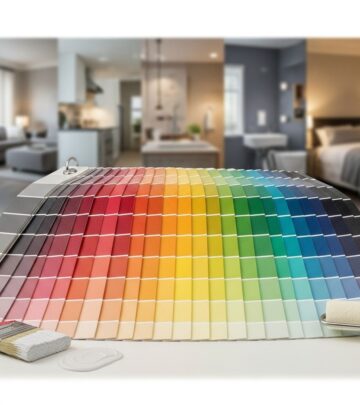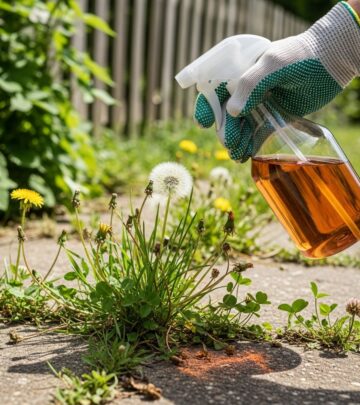How to Get Rid of Ants in Your Home and Kitchen for Good
Maintain a pest-free living space with simple, safe methods that tackle infestations from the ground up.

Few things are more frustrating than spotting a trail of ants winding across your kitchen counter or floors. Ants are among the most persistent home invaders, always hunting for food and water. Understanding how to get rid of ants and prevent future infestations can restore comfort and cleanliness to your living space. This comprehensive guide covers effective strategies for eliminating ants inside and outside your home, using natural remedies, proven tactics, and key prevention tips.
Understanding Why Ants Invade Your Home
Ants are constantly searching for food, water, and shelter. Your home is a prime target because it offers all three, often in abundance. Crumbs, spills, and accessible food are irresistible to ants, especially sugary substances like honey, syrup, and soda. They are also drawn to moisture, so leaky pipes, sinks, and damp wood can attract carpenter ants and others .
- Scout ants locate food and lead others back by leaving pheromone trails.
- Dampness attracts certain ants, notably carpenter ants that nest in wet or rotted wood.
- Weather plays a role: drought or excessive rain drive ants indoors in search of better living conditions .
How to Get Rid of Indoor Ants Permanently
Eliminating ants inside requires tackling both the visible insects and their hidden trails or nests. Follow these step-by-step solutions:
1. Clean the Problem Area Thoroughly
Ants are there for a reason: food or residue attracts them. Start by identifying and cleaning what’s luring them in. Even tiny drips of sugary liquid, unwashed dishes, or pet food can sustain a colony.
- Wipe down surfaces in the kitchen, including countertops, pantry shelves, and floors.
- Sweep and vacuum regularly to remove crumbs and small food bits.
- Check under appliances and in hidden nooks where spills or food may collect.
2. Destroy Ant Trails Using Vinegar Solution
Simply removing visible ants is not enough. Scout ants leave behind pheromone trails that other ants follow. You must eliminate these scent trails to break the cycle:
- Mix one part white vinegar to three parts water.
- Spray directly where you’ve observed ant trails, paying attention to baseboards, window sills, door frames, and entry points.
- Let the area dry; vinegar disrupts the chemical signals ants use to communicate and guide others.
3. Use Scents That Ants Hate: Peppermint and Lavender Oils
Ants have a sensitive sense of smell and are repelled by certain natural oils:
- Combine several drops of peppermint or lavender essential oil with water in a spray bottle.
- Apply the solution to ant entry points, such as window sills and door thresholds.
- Repeat daily to deter new ants from coming inside .
Tip: This method is chemical-free and safe for most homes, though essential oils should be used cautiously around pets.
4. Deploy Ant Baits (If Needed)
For persistent infestations, ant bait stations can address the problem at its source. Baits attract ants, which then carry poisonous bait back to the colony, killing it off over time.
- Place baits near ant trails but out of reach of children and pets.
- Avoid killing ants you see—they must return the bait to the nest for this method to work.
- If one brand isn’t effective, try several types until you find one that the colony accepts .
5. Eliminate Damp Spots and Rotted Wood
Carpenter ants often nest in wet, decayed wood. Check for spongy boards, leaky piping, or condensation around sinks and windows. Repairing leaks and replacing water-damaged wood removes both the source of the problem and the ants’ potential nest sites .
How to Get Rid of Outdoor Ants
Tackling ants outdoors helps prevent new invasions inside. Focus on finding and treating nests and discouraging future colony growth.
1. Search for Ant Beds and Nests
- Inspect your yard, foundation, and garden for ant hills or visible lines of ants.
- Check all wooden outdoor structures, including tree stumps, wood piles, and decking, as these may shelter carpenter ants .
2. Use Boiling Water to Kill Outdoor Nests
- Once located, pour boiling water over the ant hill or use a targeted outdoor insecticide (if desired).
- Repeat treatment as necessary; some nests may need several applications for full elimination.
Note: Exercise caution to avoid burns and protect pets and beneficial insects in the area.
3. Maintain Your Yard
- Regularly trim bushes, shrubs, and tree branches so they don’t touch your house and offer ants bridges indoors.
- Remove any accumulations of organic debris or leaf litter near your foundation.
- Keep mulch and landscaping materials away from exterior walls.
Landscaping maintenance not only deters ants but improves overall yard health.
Prevention: How to Keep Ants Out of Your Home for Good
Once you’ve eliminated ants, proactive prevention is key. These strategies will help keep your home ant-free year-round:
1. Seal All Entry Points
- Use caulk to seal cracks and tiny openings around doors, windows, and baseboards.
- Inspect for gaps around pipes, cables, and vents, sealing as needed.
- Replace worn weatherstripping and repair damaged window screens .
2. Store Food Properly
- Keep all sweet foods—especially honey, jam, syrup, and sugar—in airtight containers.
- Wrap foods tightly with foil or plastic wrap if airtight storage isn’t possible.
- Clean up crumbs and wipe sticky surfaces promptly.
3. Do Regular Cleaning and Chore Rotations
- Make a habit of wiping down countertops and tables after each meal.
- Clean floors, pantry shelves, and cabinets frequently to prevent food buildup.
- Empty and clean pet bowls between feedings; store pet food securely.
4. Take Out the Trash Frequently
- Use lidded trash cans, especially in the kitchen.
- Rinse bins regularly to avoid sticky residue at the bottom.
- Take out trash as soon as it’s full or if it contains food waste.
Effective Natural Ant Repellents (and What to Avoid)
Many homeowners prefer natural ant remedies to chemicals, especially in kitchens or homes with children and pets. Here are some proven and safe methods:
- Peppermint Oil: Mix with water and spray on entry points and ant trails.
- Lavender Oil: Works similar to peppermint, disrupting ant navigation and masking scent trails.
- Vinegar: Wipes out pheromone trails, stopping ant recruitment.
- Lemon Juice: Citric acid can disrupt ant scent trails; apply diluted lemon juice to entry points.
Avoid salt, cayenne, or cinnamon for large infestations, as these may only provide temporary relief or drive ants to new entry points. Use caution with commercial insecticides and ant baits, especially near children or pets—always read and follow the manufacturer’s safety guidelines .
Ant Prevention and Control: Quick Reference Table
| Method | Best For | Tips |
|---|---|---|
| Vinegar solution | Indoor ant trails | Spray directly on trails, repeat as needed |
| Peppermint or Lavender spray | Entry points, repellent | Reapply daily, avoid sensitive areas for pets |
| Chemical Ant Baits | Stubborn infestations | Keep away from pets/kids, don’t kill worker ants |
| Boiling water (outdoor use) | Outdoor nests | Apply with care, may need to repeat |
| Sealing entry points | Long-term prevention | Caulk cracks, fix screens, inspect regularly |
Frequently Asked Questions (FAQs) on Getting Rid of Ants
Q: Why do ants keep coming into my kitchen even after cleaning?
Ants are extremely persistent; even tiny food particles or residues can attract scout ants. Additionally, existing pheromone trails may still guide other ants in. Clean thoroughly and destroy scent trails with vinegar spray. Make it a routine to maintain ant-free conditions .
Q: Are peppermint and lavender sprays safe for pets?
Generally, diluted peppermint and lavender sprays are safe, but pets—especially cats—may be sensitive to certain essential oils. Ensure good ventilation and avoid spraying directly near pet bedding or food. Always consult a vet if you’re concerned.
Q: Will commercial ant baits harm my pets or children?
Some commercial baits can be toxic if ingested. Always read and follow label instructions carefully. Place baits in areas inaccessible to children and pets, and opt for sealed bait stations when possible .
Q: How do I deal with carpenter ants specifically?
Carpenter ants prefer moist or rotted wood. Check for water damage in your home and replace affected wood. Use baits, apply ant sprays along wooden structures, and consider professional help if infestations recur .
Q: How long does it take to get rid of an ant infestation?
Initial reductions are typically seen in a few days when using baits or sprays, but it may take one to two weeks or longer to eliminate a large colony. Continue cleaning and monitoring for activity even after ants vanish .
Top Tips for a Lasting Ant-Free Home
- Routine cleaning and sealing potential entry points are your best defense.
- Address moisture issues promptly to avoid attracting carpenter ants.
- Try natural repellents first, reserving chemicals for persistent infestations.
- Monitor your home’s exterior for signs of renewed ant activity, especially as seasons change.
- Educate everyone in the home on proper food storage and cleanup to prevent inviting ants back inside.
By combining these strategies—including prompt cleaning, natural repellents, careful food storage, and regular home maintenance—you can get rid of ants for good and enjoy a cleaner, healthier, pest-free home and kitchen all year long.
References
- https://www.countryliving.com/home-maintenance/cleaning/a27245158/how-to-get-rid-of-ants/
- https://www.consumerreports.org/home-garden/pest-control/how-to-get-rid-of-ants-in-the-house-a3627053544/
- https://www.countryliving.com/home-maintenance/cleaning/a32663773/how-to-get-rid-carpenter-ants/
- https://www.youtube.com/watch?v=TycvvVdvL_s
Read full bio of Sneha Tete










